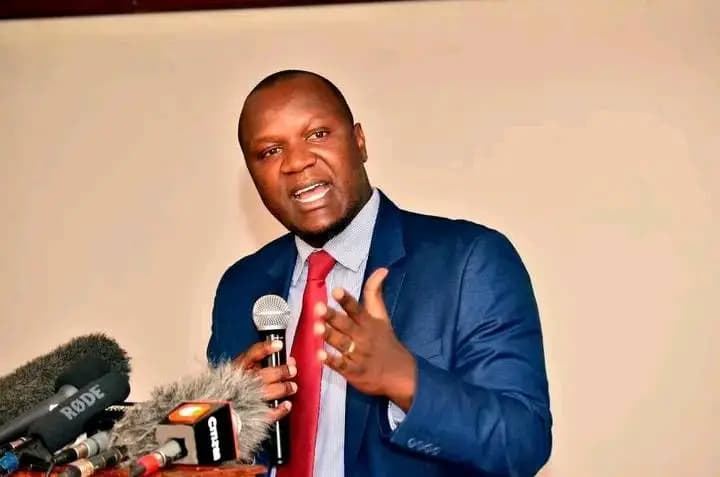The outspoken constitutional lawyer Willis Otieno has unleashed a blistering attack on President William Ruto and his allies over the controversial plan to construct a Ksh1.2 billion church within State House Nairobi, branding the move as a constitutional travesty and a dangerous blurring of church and state.
In a scathing statement on his official X account on Friday, July 4, 2025, Otieno dismissed the explanation that Ruto is using his own money for the extravagant chapel, calling it an insult to the intelligence of Kenyans.
“Kenya has lost direction. Completely. We are being told with a straight face that a man whose official salary is Ksh1.4 million a month is building a Ksh1.2 billion church out of his pocket? Let’s be serious. Even if he never ate, never travelled, and never paid a single school fee or tithe, it would still take him over 70 years to save that money, net of tax,” he said.
The proposal for the ultra-modern, multi-faith church to be built at State House was unveiled by President Ruto, who framed the project as part of a personal vow to God made during the 2022 elections.

According to Ruto, it is not public money. It is my money. I made a promise to God, and I am keeping it. But Otieno, known for his sharp constitutional analysis, scoffed at the justification, calling it a thinly-veiled attempt to Christianise the state and misuse public infrastructure for personal religious expression.
“Since when did personal vows to God become binding on public institutions funded by taxpayers?” he asked.
“You say the military has chaplains. Yes. But the military also has imams, Hindu spiritual leaders, and psychologists. And their services are provided within a pluralistic framework, not by building one giant church in the name of God and Commander-in-Chief.”

Otieno’s roar
Otieno also aimed at Ruto’s defenders, who have pointed to Bishopbourne—the former Anglican clergy residence used during colonial times—as precedent.
“Are you seriously using a colonial-era Christian structure as constitutional justification for embedding religion into modern state operations? Have we regressed from the 2010 Constitution back to a British protectorate mindset?” he posed.
“If this were a mosque, would you still be defending it?” Would the same apologists remain silent if the President promised Allah a minaret in the middle of the State House?”

He said the Kenyan Constitution recognises freedom of religion and expressly separates religion from state operations. He argues that constructing such a monumental religious structure in the seat of executive power undermines this foundation and signals a creeping theocracy.
“Kenya is a secular, pluralistic republic. Personal faith must never override constitutional boundaries. Let Ruto honour his promises to God but on his land, with his money, and without defiling public institutions.”
Otieno stated that, still, with Kenyans facing rising living costs, unemployment, and a national debt crisis, the optics of a billion-shilling religious monument at State House are proving politically radioactive. By Aloys Michael, People Daily






